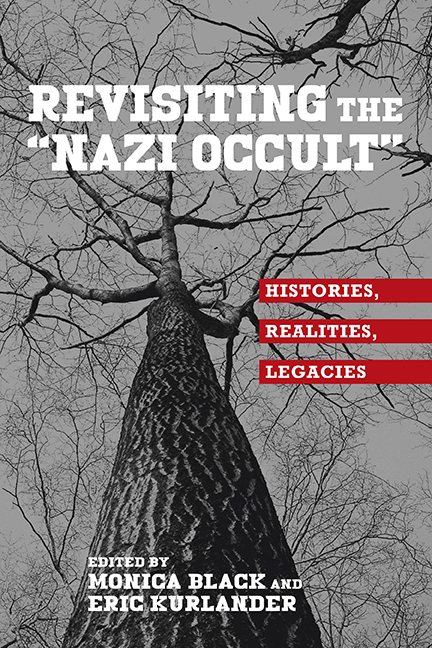4 - Siegfried Kracauer, Spirit, and the Soul of Weimar Germany
Published online by Cambridge University Press: 10 June 2021
Summary
MONICA BLACK AND ERIC KURLANDER explain in the introduction to this volume that “there has been no shortage of material over the decades suggesting a close connection between Nazism and the occult.” I seek in this essay to examine the historical roots of this claim through an analysis of the work of Siegfried Kracauer (1889–1966), the famed essayist and film critic. Kracauer asserted in his classic 1947 work From Caligari to Hitler: A Psychological History of the German Film that there was an important but unstated connection revealed in the cultural artifacts produced in the Weimar period between the manic horror of the Weimar years and the horrible manias of the Third Reich. If Kracauer is correct, that means that reexamining the links between Weimar culture, especially when it centers on the fantastic, grotesque, and occult, and the implementation of a fascist politics after 1933, is essential to writing the cultural history of Nazism.
Kracauer's thesis is especially important for its demand that we investigate the Weimar period—its mass fantasies and their political expressions— if we want to understand Nazism and its relationship to spirituality, for his analysis of mass culture is in some fashion an occult study: the reading of esoteric signs for deeper knowledge and meaning. There are three related areas in connection with Kracauer's thesis that we consider in this essay. The first traces Kracauer's arguments in From Caligari to Hitler. The second probes his Weimar era essays for his thoughts on the status of spirituality (and its connection to occult movements like anthroposophy) during the Weimar Republic. The third examines Kracauer's position on mass culture and what it might tell us about the covertly expressed desires of Germans in the period before the ascension of Hitler to the chancellery.
One way of understanding Kracauer's diagnosis of Weimar culture and its connections to the later development of and attraction to Nazism is to consider his account of spirituality. The occult remains a somewhat foggy term for Kracauer, who more consistently discussed “spirituality,” yet the dynamic remained visible to him as a set of inchoate emotions that could find expression in the political realm.
- Type
- Chapter
- Information
- Revisiting the "Nazi Occult"Histories, Realities, Legacies, pp. 86 - 102Publisher: Boydell & BrewerPrint publication year: 2015

